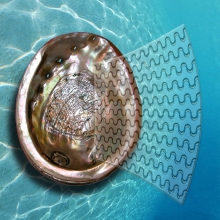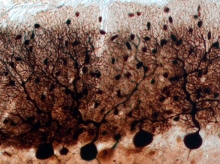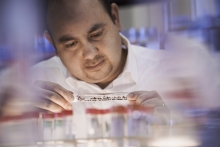A new study by McGill University will examine whether vaccinating only one partner in a couple against the human papillomavirus (HPV) can help prevent transmission of HPV to the unvaccinated partner.

Normally when you drop a drinking glass on the floor it shatters. But, in future, thanks to a technique developed in McGill’s Department of Mechanical Engineering, when the same thing happens the glass is likely to simply bend and become slightly deformed. That’s because Prof. François Barthelat and his team have successfully taken inspiration from the mechanics of natural structures like seashells in order to significantly increase the toughness of glass.


How would electrons behave if confined to a wire so slender they could pass through it only in single-file?

Nahum Sonenberg, a James McGill Professor in the Department of Biochemistry and the Rosalind and Morris Goodman Cancer Research Centre at McGill University, is one of eight winners of the prestigious Wolf Prize as announced in Tel Aviv yesterday.



Health care spending is a large – and ever increasing - portion of government budgets. Improving its efficiency has therefore become critically important. In the first-ever study to estimate health spending efficiency by gender across 27 industrialized nations, researchers discovered significant disparities within countries, with stronger gains in life expectancy for men than for women in nearly every nation.
A new study by Canadian researchers may pave the way for more effective treatment of an aggressive and deadly type of brain tumour, known as ETMR/ETANTR. The tumour, which is seen only in children under four, is almost always fatal, despite aggressive treatment. The study proposes a new model for how this brain tumour develops and suggests possible targets to investigate for novel therapies. These findings, recently published in Nature Genetics, also shed new light on the complex process of early brain development. The study was led by the Research Institute of the McGill University Health Centre (RI-MUHC), McGill University, and The Hospital for Sick Children (SickKids), and funded by the Cancer Research Society.




